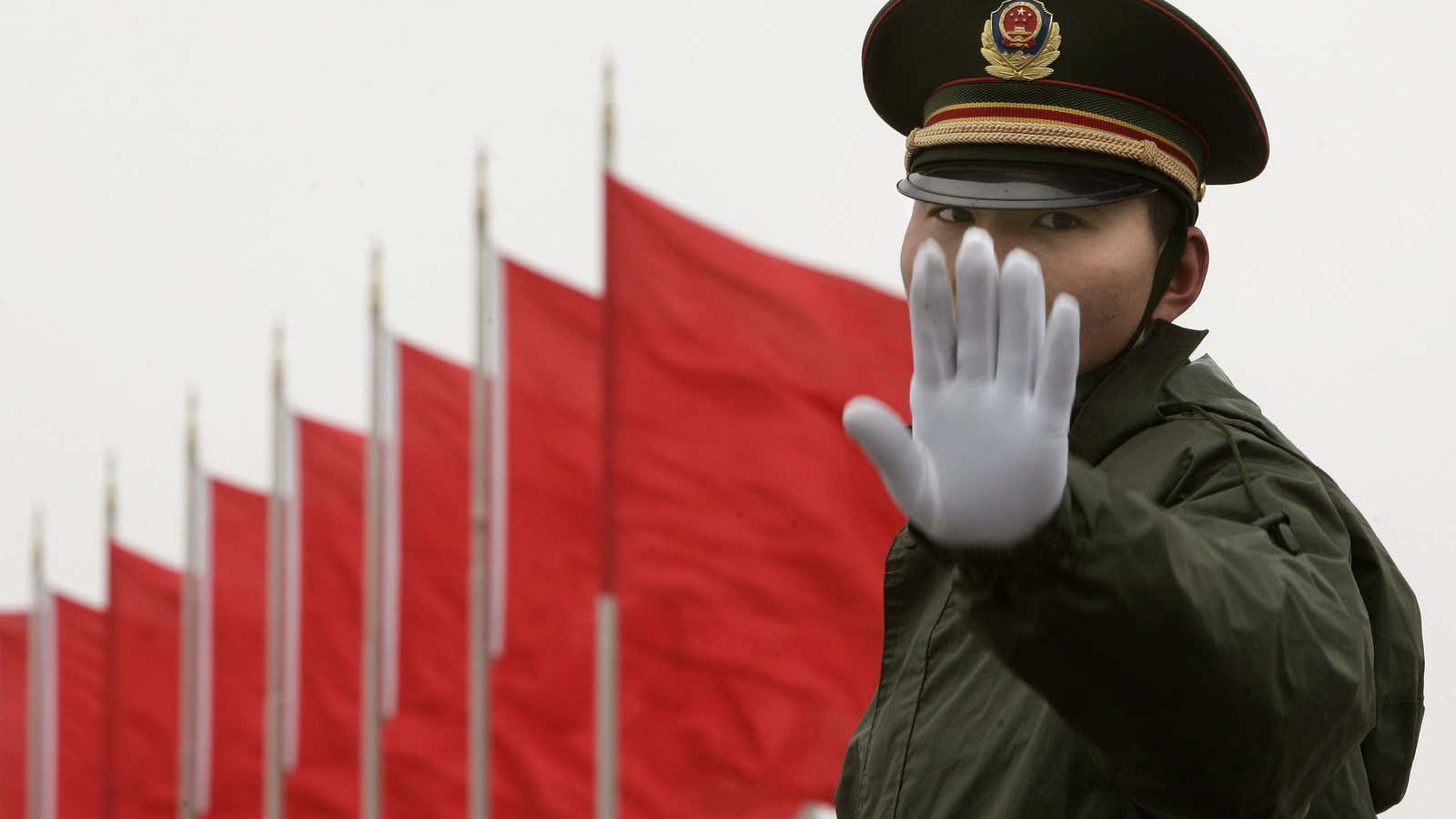26 years ago tomorrow, the People’s Liberation Army mowed down protesters in Tiananmen Square and elsewhere in Beijing. Though it’s never openly discussed in China, behind closed doors people refer to the massacre simply by its date, “six-four,” for June 4th. And of course, it’s never publicly mentioned because the Chinese government censors the heck out of any attempt to bring it up—especially around the anniversary each year.
True to form, the Chinese government’s censors are hard at work this year too. It’s going to some really remarkable lengths to ensure its people won’t remember. Here’s what South China Morning Post’s George Chen reports is happening to users of the wildly popular WeChat payment app who try to send 6.40 yuan:
“Irregular transaction, please try again later,” the app says. Chen notes, another permutation involving the date and the year—1989—won’t work either.
In fact, blocking “64” is a common tactic, even if it means the hyper-paranoid Chinese authorities end up casting their net a little wide. Tweets with the numeral are being deleted on Sina Weibo, China’s Twitter-like social media platform, at the moment, according to FreeWeibo.com (along with the Chinese words for Oriental Star and shipwreck). The politically delicate tweets that the censors have recently deleted include one reporting July Brent crude futures falling to $64.88 a barrel and another about a 64-year-old American woman returning lost money that she found on the street.
This kind of censorship overreach isn’t limited to the anniversary of Tiananmen. Google’s blog flagged two examples in 2012. The first saw the censors block the character 江 (jiang, which is a common surname and also means “river”)—probably due to gossip surrounding the former president Jiang Zemin. It caused error messages for the zillion places and names that feature that character, including a leading hotel chain, a popular tourist town, the mobile phone carrier for an entire province, and the Yangtze River, to name a few.
Something similar happened with searches involving 周 (zhou, a common surname and that of now-disgraced former leader Zhou Yongkang, though it otherwise means week). Searches for pop star Jay Chou and comedian Stephen Chow, and even the words for “weekend” and days of the week fritzed.
